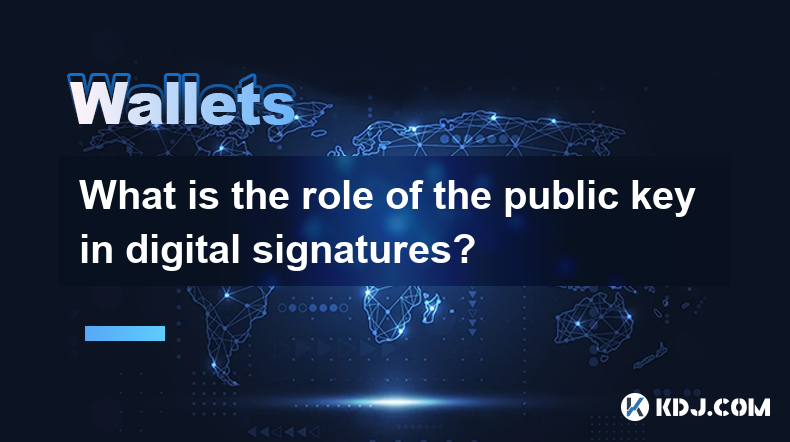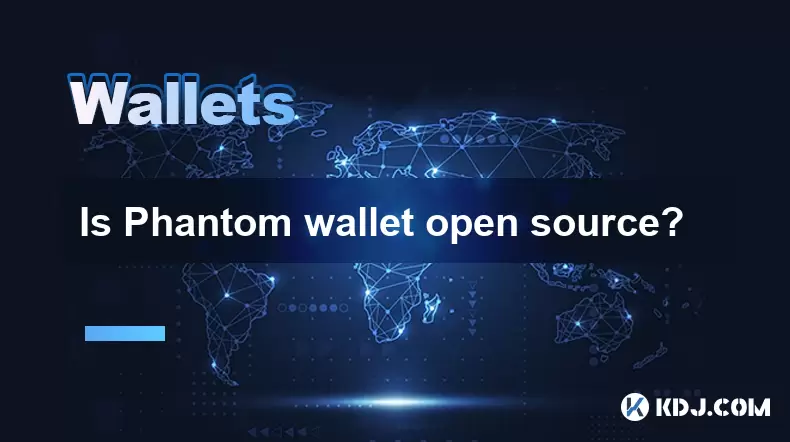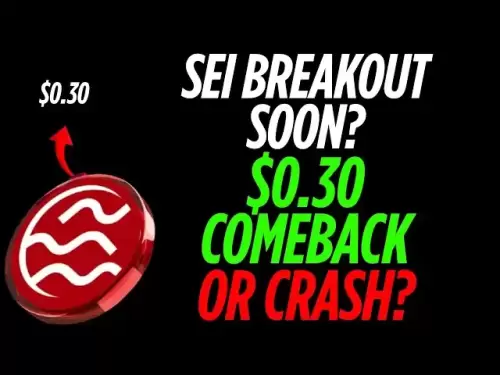-
 Bitcoin
Bitcoin $108,998.8231
-0.42% -
 Ethereum
Ethereum $2,559.8605
-1.50% -
 Tether USDt
Tether USDt $1.0003
-0.01% -
 XRP
XRP $2.2370
-1.61% -
 BNB
BNB $658.8428
-0.38% -
 Solana
Solana $152.5754
-1.83% -
 USDC
USDC $0.9999
0.00% -
 TRON
TRON $0.2860
0.80% -
 Dogecoin
Dogecoin $0.1686
-3.07% -
 Cardano
Cardano $0.5870
-2.98% -
 Hyperliquid
Hyperliquid $39.0016
-3.15% -
 Sui
Sui $2.9650
-0.78% -
 Bitcoin Cash
Bitcoin Cash $485.4220
-4.72% -
 Chainlink
Chainlink $13.4878
-2.34% -
 UNUS SED LEO
UNUS SED LEO $9.0360
0.33% -
 Avalanche
Avalanche $18.4749
-2.93% -
 Stellar
Stellar $0.2401
-1.50% -
 Toncoin
Toncoin $2.8110
-3.17% -
 Shiba Inu
Shiba Inu $0.0...01172
-3.08% -
 Litecoin
Litecoin $88.5225
-1.84% -
 Hedera
Hedera $0.1564
-2.10% -
 Monero
Monero $321.1304
-1.57% -
 Polkadot
Polkadot $3.4842
-4.14% -
 Dai
Dai $0.9999
-0.01% -
 Ethena USDe
Ethena USDe $1.0002
0.00% -
 Bitget Token
Bitget Token $4.4712
-3.14% -
 Uniswap
Uniswap $7.3446
-3.88% -
 Aave
Aave $273.8547
-2.64% -
 Pepe
Pepe $0.0...09782
-7.85% -
 Pi
Pi $0.4811
-3.65%
What is the role of the public key in digital signatures?
Public keys, integral to cryptocurrency security, verify digital signatures. Linked to private keys, they uniquely identify owners, allowing anyone to authenticate transactions and ensuring only the rightful owner can authorize them.
Mar 17, 2025 at 04:25 am

Key Points:
- Public keys are fundamental to verifying digital signatures in cryptocurrencies.
- They act as a unique identifier, linked to a corresponding private key.
- The public key allows anyone to verify the authenticity and integrity of a digitally signed transaction.
- Understanding public keys is crucial for comprehending the security of blockchain technology.
- The mathematical relationship between public and private keys ensures only the private key holder can create a valid signature.
What is the role of the public key in digital signatures?
In the world of cryptocurrencies, digital signatures are paramount for securing transactions and verifying the authenticity of data. At the heart of this security lies the public key, a crucial component of the asymmetric cryptography system that underpins blockchain technology. Unlike symmetric encryption where the same key is used for encryption and decryption, asymmetric cryptography utilizes a pair of keys: a private key and a public key.
The public key, as its name suggests, is publicly available. It's essentially a mathematical representation linked to a corresponding private key, but without revealing the private key itself. Think of it like a digital fingerprint, uniquely identifying the owner of the private key. This public key is often shared openly, for example, included in a cryptocurrency wallet address.
The public key's primary role in digital signatures is verification. When someone creates a digital signature using their private key, this signature can be verified by anyone who has access to the corresponding public key. The verification process confirms that the signature was indeed generated using the private key associated with that specific public key.
This process ensures the integrity and authenticity of the signed data. If the signature verifies successfully using the public key, it means the data hasn't been tampered with since it was signed, and it originated from the owner of the private key. This is crucial in cryptocurrencies where transactions need to be tamper-proof and verifiable by all participants on the network.
The security of this system hinges on the computational difficulty of deriving the private key from the public key. This one-way function makes it practically impossible for anyone to forge a signature without possessing the private key. Therefore, the public key serves as a trusted mechanism for verifying the legitimacy of digital signatures.
How does the public key facilitate transaction verification?
The process of verifying a cryptocurrency transaction using digital signatures and public keys can be broken down into these steps:
- Transaction Creation: The sender creates a transaction, including details like recipient address and amount.
- Signature Generation: The sender signs the transaction using their private key. This creates a digital signature, mathematically linked to the transaction data.
- Transaction Broadcasting: The signed transaction, including the signature and the sender's public key, is broadcast to the network.
- Verification by Nodes: Each node on the network receives the transaction and verifies the signature using the sender's public key. This confirms the authenticity and integrity of the transaction.
- Transaction Confirmation: If the signature is valid, the transaction is added to the blockchain.
The public key acts as the key to unlocking the verification process. Without the public key, the verification of the digital signature is impossible. This mechanism ensures only the legitimate owner of the private key can authorize a transaction.
What are the security implications of public key usage?
The security of using public keys relies heavily on the secrecy of the corresponding private key. If the private key is compromised, anyone can forge signatures and make unauthorized transactions. Therefore, secure storage and management of private keys are paramount.
The strength of the cryptographic algorithms used to generate the public-private key pair also plays a crucial role. Weak algorithms could be vulnerable to attacks, potentially allowing malicious actors to derive the private key from the public key. Therefore, the use of robust, well-vetted cryptographic algorithms is essential.
Common Questions and Answers:
Q: Can a public key be used to decrypt a message?
A: No, the public key is only used for verification of digital signatures. Decryption requires the corresponding private key.
Q: Is it possible to derive the private key from the public key?
A: Theoretically, yes, but it is computationally infeasible with current technology for strong cryptographic algorithms. This is the basis of the security of the system.
Q: What happens if the public key is lost or compromised?
A: If the public key is lost, transactions cannot be verified. If compromised, malicious actors might falsely claim ownership of the associated private key. This emphasizes the need for secure storage and management of both private and public keys.
Q: How are public keys represented?
A: Public keys are typically represented as long strings of alphanumeric characters, often hexadecimal or base58 encoded. The specific format varies depending on the cryptocurrency and the cryptographic algorithm used.
Q: What is the difference between a public key and a public address?
A: While closely related, they are not the same. A public key is a cryptographic element used for signature verification. A public address is a shortened, human-readable version of a public key hash, used for receiving transactions. The public address provides a simpler way to interact with the system.
Disclaimer:info@kdj.com
The information provided is not trading advice. kdj.com does not assume any responsibility for any investments made based on the information provided in this article. Cryptocurrencies are highly volatile and it is highly recommended that you invest with caution after thorough research!
If you believe that the content used on this website infringes your copyright, please contact us immediately (info@kdj.com) and we will delete it promptly.
- Cryptos, Jerome Powell, and Recession: Decoding the Latest Market Moves
- 2025-07-04 14:30:12
- Tokenization Heats Up: Ondo, Pantera, and the $250M RWA Revolution
- 2025-07-04 14:30:12
- BONK Price Prediction: Meme Coin Mania and What's Next?
- 2025-07-04 12:30:13
- NYAG, Stablecoins, and FDIC Protections: Navigating the Regulatory Maze
- 2025-07-04 13:10:15
- Level Up Your DeFi Game: Phantom Wallet and the Ultimate DeFi Experience
- 2025-07-04 13:10:15
- Bitcoin Surge: Breaking Down the $109,000 Barrier and the Road to $165,000?
- 2025-07-04 12:30:13
Related knowledge

How to cancel a pending transaction in Phantom wallet?
Jul 03,2025 at 07:21pm
Understanding Pending Transactions in Phantom WalletA pending transaction in the Phantom wallet occurs when a user initiates a transfer or interaction with the Solana blockchain, but it hasn't yet been confirmed by the network. This can happen due to various reasons such as low transaction fees, network congestion, or incorrect gas settings. It's import...

How to see the estimated value of my tokens in Phantom wallet?
Jul 04,2025 at 12:21am
What is Phantom Wallet?Phantom wallet is one of the most popular cryptocurrency wallets designed for the Solana blockchain. It allows users to store, send, receive, and manage various tokens built on Solana, including SPL tokens and NFTs. The wallet offers a user-friendly interface, making it accessible for both beginners and advanced users in the crypt...

How to lock my Phantom wallet extension?
Jul 03,2025 at 11:14am
What Is the Phantom Wallet and Why Lock It?The Phantom wallet is a popular non-custodial cryptocurrency wallet designed for interacting with the Solana blockchain. Supporting both browser extensions and mobile apps, Phantom allows users to store, send, receive, and stake SOL tokens, as well as interact with decentralized applications (dApps). Securing y...

Does Phantom wallet offer two-factor authentication (2FA)?
Jul 03,2025 at 09:00am
Understanding Phantom Wallet and Its Security FeaturesPhantom wallet is a widely used non-custodial cryptocurrency wallet that supports the Solana blockchain. It allows users to store, send, receive, and interact with decentralized applications (dApps) seamlessly. As security is a top priority for any crypto wallet user, security features like two-facto...

What is "rent" on Solana and how does it affect my Phantom wallet?
Jul 02,2025 at 08:35pm
Understanding 'Rent' on SolanaIn the context of Solana, the term 'rent' refers to a storage fee that users pay for maintaining data on the blockchain. Unlike Ethereum, where storage costs are paid once via gas fees during contract deployment, Solana implements a recurring cost model to ensure efficient usage of network resources. This means that any acc...

Is Phantom wallet open source?
Jul 03,2025 at 12:29am
What is Phantom Wallet?Phantom wallet is a non-custodial cryptocurrency wallet primarily designed for the Solana blockchain. It allows users to store, send, receive, and interact with decentralized applications (dApps) on the Solana network. The wallet is available as a browser extension and mobile application, offering a seamless experience for both be...

How to cancel a pending transaction in Phantom wallet?
Jul 03,2025 at 07:21pm
Understanding Pending Transactions in Phantom WalletA pending transaction in the Phantom wallet occurs when a user initiates a transfer or interaction with the Solana blockchain, but it hasn't yet been confirmed by the network. This can happen due to various reasons such as low transaction fees, network congestion, or incorrect gas settings. It's import...

How to see the estimated value of my tokens in Phantom wallet?
Jul 04,2025 at 12:21am
What is Phantom Wallet?Phantom wallet is one of the most popular cryptocurrency wallets designed for the Solana blockchain. It allows users to store, send, receive, and manage various tokens built on Solana, including SPL tokens and NFTs. The wallet offers a user-friendly interface, making it accessible for both beginners and advanced users in the crypt...

How to lock my Phantom wallet extension?
Jul 03,2025 at 11:14am
What Is the Phantom Wallet and Why Lock It?The Phantom wallet is a popular non-custodial cryptocurrency wallet designed for interacting with the Solana blockchain. Supporting both browser extensions and mobile apps, Phantom allows users to store, send, receive, and stake SOL tokens, as well as interact with decentralized applications (dApps). Securing y...

Does Phantom wallet offer two-factor authentication (2FA)?
Jul 03,2025 at 09:00am
Understanding Phantom Wallet and Its Security FeaturesPhantom wallet is a widely used non-custodial cryptocurrency wallet that supports the Solana blockchain. It allows users to store, send, receive, and interact with decentralized applications (dApps) seamlessly. As security is a top priority for any crypto wallet user, security features like two-facto...

What is "rent" on Solana and how does it affect my Phantom wallet?
Jul 02,2025 at 08:35pm
Understanding 'Rent' on SolanaIn the context of Solana, the term 'rent' refers to a storage fee that users pay for maintaining data on the blockchain. Unlike Ethereum, where storage costs are paid once via gas fees during contract deployment, Solana implements a recurring cost model to ensure efficient usage of network resources. This means that any acc...

Is Phantom wallet open source?
Jul 03,2025 at 12:29am
What is Phantom Wallet?Phantom wallet is a non-custodial cryptocurrency wallet primarily designed for the Solana blockchain. It allows users to store, send, receive, and interact with decentralized applications (dApps) on the Solana network. The wallet is available as a browser extension and mobile application, offering a seamless experience for both be...
See all articles

























































































